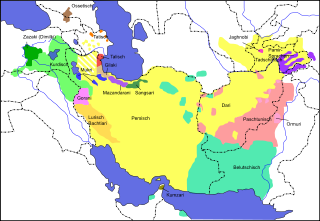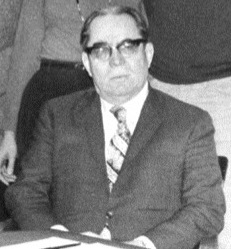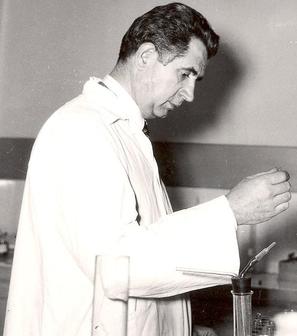Related Research Articles

Zaza is a Northwestern Iranian language spoken primarily in eastern Turkey by the Zaza Kurds, and in many cases identify as such. The language is a part of the Zaza–Gorani language group of the northwestern group of the Iranian branch. The glossonym Zaza originated as a pejorative. According to Ethnologue, Zaza is spoken by around three to four million people. Nevins, however, puts the number of Zaza speakers between two and three million. Ethnologue also states that Zaza is threatened as the language is decreasing due to losing speakers, and that many are shifting to Turkish.

Ayşe Afet İnan was a Turkish historian and sociologist. She was one of the eight adopted daughters of Mustafa Kemal Atatürk. She was known to be involved in the practice of physical anthropology, as she measured over sixty thousand skulls in Anatolia, which was aimed to support the Turkish History Thesis.

Halil İnalcık was a Turkish historian. His highly influential research centered on social and economic approaches to the Ottoman Empire. His academic career started at Ankara University, where he completed his PhD and worked between 1940 and 1972. Between 1972 and 1986 he taught Ottoman history at the University of Chicago. From 1994 on he taught at Bilkent University, where he founded the history department. He was a founding member of the Eurasian Academy.

Turkish and Foreign Languages Research and Application Center of Ankara University, TÖMER, was founded in 1984 by Mehmet Hengirmen for the purposes of teaching the Turkish language to foreigners and natives; such language and culture institutions as the British Council, Goethe Institut, Instituto Cervantes and Alliance française acted as models for the constitution of the Center. It has class levels from beginner to advanced.
Muhammad Birgivi (1523–1573), full name Taqī al-Dīn Muhammad ibn Pīr ʿAlī al-Birgivi and known simply as Imam Birgivi, was a Hanafi Muslim jurist and scholar who lived during the rule of the Ottoman Empire in Anatolia.
Mehmet Cavit Bey, Mehmed Cavid Bey or Mehmed Djavid Bey was a Dönme–Ottoman economist, newspaper editor and leading politician during the dissolution period of the Ottoman Empire. As a Young Turk and a member of the Committee of Union and Progress (CUP) had positions in government after the constitution was re-established. In the beginning of the Republican period, he was controversially executed for his alleged involvement in an assassination attempt against Mustafa Kemal Atatürk.

Hasan Nusret Fişek was a Turkish physician and Minister of Health.

Suraiya N. Faroqhi, is a German scholar, Ottoman historian and a leading authority on Ottoman history. She was elected as a Corresponding Fellow of the British Academy for the year 2022, under the "Early Modern History to 1850" category.

Sevim Tekeli was a prominent Turkish history of science professor.

F. Tulga Ocak was a Turkish academic and professor of classical Turkish literature and Persian language. She worked at Hacettepe University.
Zaza nationalism is an ideology that supports the preservation of Zaza people between Turks and Kurds in Turkey. The movement also supports the idea that the Zaza people are a different ethnic group from Kurds.

Gülzura Cumakunova is a Kyrgyz linguistic scholar specializing in the dialects of Turkic languages.

Dilhan Eryurt was a Turkish astrophysicist who made major contributions to scientific research on the formation and evolution of the Sun and other main sequence stars.

Abdülbaki Gölpınarlı (1900—1982) was a Turkish literary historian of Azerbaijani descent, known for his works on Sufism, Divan literature and Iranian literature. He was a translator and educator, "an outstanding interpreter of Sufism, especially the Mawlaviyya and Bektashiyya schools", as well as "one of the greatest scholars of Turkish Sufism".
Ayşe Athermelik Dürrüşehvar Hanım was the eldest daughter of Sultan Abdul Hamid I of the Ottoman Empire.
Şehzade Mehmed Seyfeddin Efendi was an Ottoman prince, the son of Sultan Abdulaziz and Gevheri Kadın.

Şehzade Mehmed Burhaneddin Efendi was an Ottoman prince, son of Sultan Abdul Hamid II and Mezidemestan Kadın.
Zsuzsa Kakuk is a Hungarian linguist and Turkologist.

İclal Aydın is a Turkish actress, writer, journalist, and TV presenter. She is best known for popular comedy family series "İki Aile".
Maria Pia Pedani was an Italian historian and an honorary member of the Turkish Historical Society.
References
- 1 2 3 4 5 6 "Zeynep Korkmaz" (PDF). ICANAS. Retrieved 26 June 2012.
- 1 2 3 4 5 6 7 "Zeynep Korkmaz". Biyografi.net (Biographies). Retrieved 5 June 2012.
- ↑ "Prof. Dr. Zeynep Korkmaz". Bilgi.com (Information). Retrieved 5 July 2012.
- ↑ Z. Korkmaz's books. World Cat. OCLC 281713136 . Retrieved 26 June 2012.
- ↑ "Categories". Nadir Kitap. Retrieved 26 June 2012.
- ↑ "Biyografiler". Tuncer Gülensoy. Retrieved 5 July 2012.
- ↑ Türkçenin asırlık çınarı Nevşehirli Zeynep Korkmaz 100 yaşında